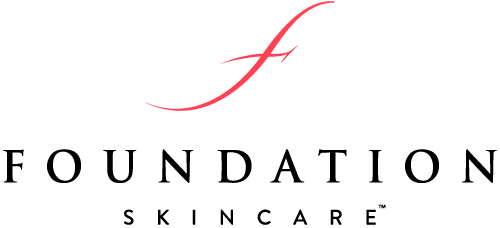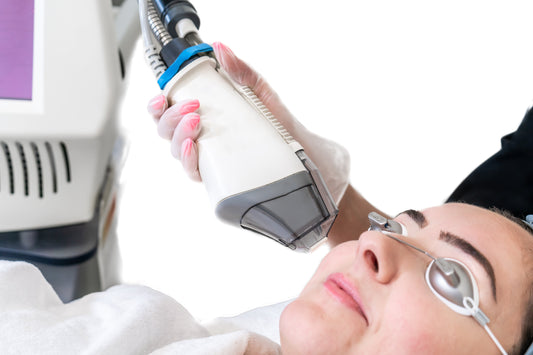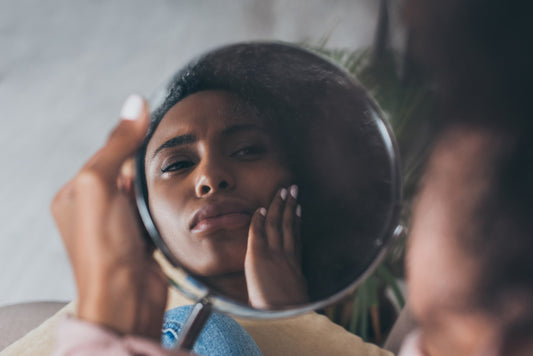Understanding Retinoids and Retinol
Once retinoids were introduced in the 1970s as a prescription acne treatment, it didn’t take long for doctors to notice that their new go-to acne treatment had some other benefits as well. The new wonder treatment accelerated skin growth, collagen creation, and elasticity. Then over-the-counter anti-aging products containing retinol came to market. The ingredients are similar but it’s important to understand more about them before deciding if you can benefit from them.
Key Differences Between Retinol and Retinoids
Retinoids are a type of vitamin A that can help improve and heal skin. Retinol is a subtype of retinoid. Both retinoids and retinol have similar anti-aging effects on skin, but the main difference between them is strength.1
Retinoids are stronger and generally only available by prescription, primarily to treat moderate-to-severe acne. The stronger concentration means that they work faster than retinol, but the chance of negative side effects is higher, which is why they require a prescription and to be under the care of doctor when you are using them.
Retinol tends to be safer to use, but it may take longer for you to notice the benefits. Retinol is a better choice to treat mild skin conditions and can more easily be combined with other skincare products.
Benefits of Retinol and Retinoids
Let’s get down to the good stuff. Retinoids and retinol are both packed with benefits for your skin, including accelerating skin cell and collagen production, as well as improving skin elasticity.3
Benefits of accelerated skin cell production include:
-
Fewer acne breakouts due to clogged pores
-
Smaller pores
-
Protection against sun damage and dark spots from too much melanin
Boosted collagen and elasticity helps:
-
Reduce acne scars
-
Slow swelling and inflammation
-
Reduce fine lines and wrinkles
-
Skin looks healthier and brighter
Potential Side Effects and Considerations
While prescription-strength retinoids are more likely to cause side effects, both retinoids and retinol can cause skin irritation, redness, dry skin, flaking, and burning.4 This is why it’s very important to review how the product is formulated, as most retinols also contain other ingredients that can soothe or hydrate, reducing the chance of irritation.
These side effects may be caused by overuse or too high a concentration of retinoids. Be particularly careful if you have allergies or sensitive skin.4
It’s important to start using retinoids slowly. Start with a weaker concentration and only use one retinoid product at a time. At the beginning only use it once every other day and always use a good moisturizer to keep your skin from over drying.3 It’s also recommended to use the retinoids in your nighttime routine and apart from other products you may be using such as the Azelaic Acid Cream or Vitamin C lotion.
Retinoids make your skin more sensitive to sunlight so it’s necessary to use SPF 30+ sunscreen every day if you are using it in prescription or over-the-counter formulas.
You shouldn’t use retinoids or retinol when pregnant, breastfeeding, or trying to conceive.3
How to Choose What is Right for You
When trying to decide between over-the-counter retinol or prescription retinoids, consider your skin type and the severity of the skin condition you want to improve.1
Prescription retinoids are the better choice for severe acne or psoriasis. If you have dry or sensitive skin or mild acne, it may be better to start with retinol which is less drying and is often combined with a hydrating ingredient.
It can take three-to-six months to notice results from retinoids, while it can take up to 12 months to see benefits from retinol products.2
A good choice for starting slowly is Foundation Skincare’s Night Renewal Cream. Its two percent concentration is designed by dermatologists to give you big anti-aging benefits while reducing the risk of irritation even for sensitive skin.
Night Renewal Cream
• Anti-aging defense, moisturizer
• Improves fine lines, skin texture
How to Incorporate Retinol and Retinoids into Your Skincare Routine
The key to using retinol and retinoids safely is to start slowly. Always follow the instructions from your doctor when using a prescription product.
If using non-prescription retinol in your skincare rountine, test the product on a small patch of skin to see if it irritates your skin. If you tolerate it well, start using two-to-three times a week and work your way up to using nightly.3
Only use retinol products at night after washing your face to lessen the effects of sun sensitivity. After applying, always use a moisturizer to keep your skin from drying too much.
Here are some tips for using retinol with other anti-aging products.4
-
Azelaic acid: Best to alternate with retinol products to lessen risk of irritation. Particularly useful in treating acne and post-inflammatory hyperpigmentation in skin of color.7
If you want to see big benefits, pair your favorite retinol product with dermatologist-formulated Azelaic Acid 14% Cream. Its non-irritating formula helps with acne, rosacea, hyperpigmentation and is safe to use with sensitive skin. Our dermatologist recommends using the Azelaic Acid in the morning, and the retinol at night.
-
Hyaluronic acid: Helps reduce irritation and dry skin caused by retinol.
If you are looking for a powerful moisturizer that layers well with retinol, try Foundation Skincare’s Hyaluronic Acid Lotion. Its dermatologist-created formula adds a protective barrier for your skin that helps boost the natural healing process.
-
Niacinamide: Helps lessen irritation caused by retinol.
Enhance your skincare routine with Niacinamide Lotion 10%. Dermatologist tested and approved to fight hyperpigmentation, decrease inflammation, and prevent acne breakouts, it pairs nicely with retinol products.
-
Salicylic acid: Best to alternate with retinol products to lessen the chance of dry skin and irritation.
-
Vitamin C: Add in slowly over time to reduce irritation. Use vitamin C in the morning and retinol at night.
Foundation Skincare’s Vitamin C Lotion 20% combines the exfoliating power of vitamin C with a moisturizer and works in tandem with retinol products to brighten skin and boost collagen production.
Depending on your skin’s needs, retinoids or retinol are good choices for helping reduce breakouts and inflammation and keep skin looking healthy.
References:
-
https://www.healthline.com/health/beauty-skin-care/retinoid-vs-retinol
-
https://www.health.harvard.edu/staying-healthy/do-retinoids-really-reduce-wrinkles
-
https://www.aad.org/public/everyday-care/skin-care-secrets/anti-aging/retinoid-retinol
-
https://my.clevelandclinic.org/health/treatments/23293-retinol
-
https://jamanetwork.com/journals/jamadermatology/fullarticle/412795
-
https://pubmed.ncbi.nlm.nih.gov/23652891/
-
https://pmc.ncbi.nlm.nih.gov/articles/PMC8776661/






